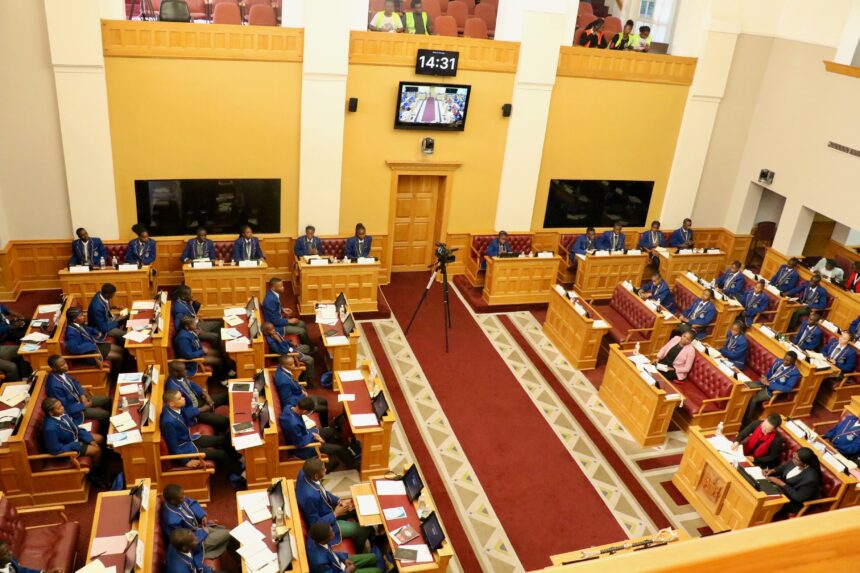Samuel Kweku, the UNICEF Representative to Namibia, described Namibia’s youthful population, of which almost a million of the population is aged 0-24, as both a challenge and an opportunity.
He made these remarks during the official opening of the first session of the 6th Children’s Parliament on Monday.
“A challenge because, as a country, we must plan, educate and create employment for this segment of the population. An opportunity because the demographic dividend window is unique. Here, we have a young workforce full of potential. All we need to do is to tap into this group for better investment outcomes of both families and governments. We, at UNICEF, see this as a sound investment with multiple dividends,” he motivated.
He remarked that like most countries on the African continent, Namibia continues to be plagued by challenges of keeping children in school.
In 2023, about 22% of learners failed Grade 4, and had to repeat the grade.
“What is alarming is that from those repeating this grade, 10-year-old male learners dropped out of school, rather than repeating the grade.
Many are dropping out due to disparities created by the inequalities that still prevail because of apartheid,” he said.
He further called for urgent investments in Foundational Literacy and Numeracy for every child to address the learning crisis, and to transform the education system of Namibia.
This will ensure every learner gains a solid foundation in basic reading and mathematics.
Kweku called on the members of the 6th Session of the Children’s Parliament to participate meaningfully on behalf of nearly a million other children in Namibia.
He said they should debate and contribute to the carving of the education system they want – one that reflects the skills they need to fully participate in the future workforce.
He further said the platform presented creates a much-needed safe environment for Namibian children to be included, and have their voices heard.
He further reaffirmed UNICEF’s commitment to continue working with the government of Namibia, through the Ministry of Education, Arts and Culture, as well as all stakeholders.
-Nampa


